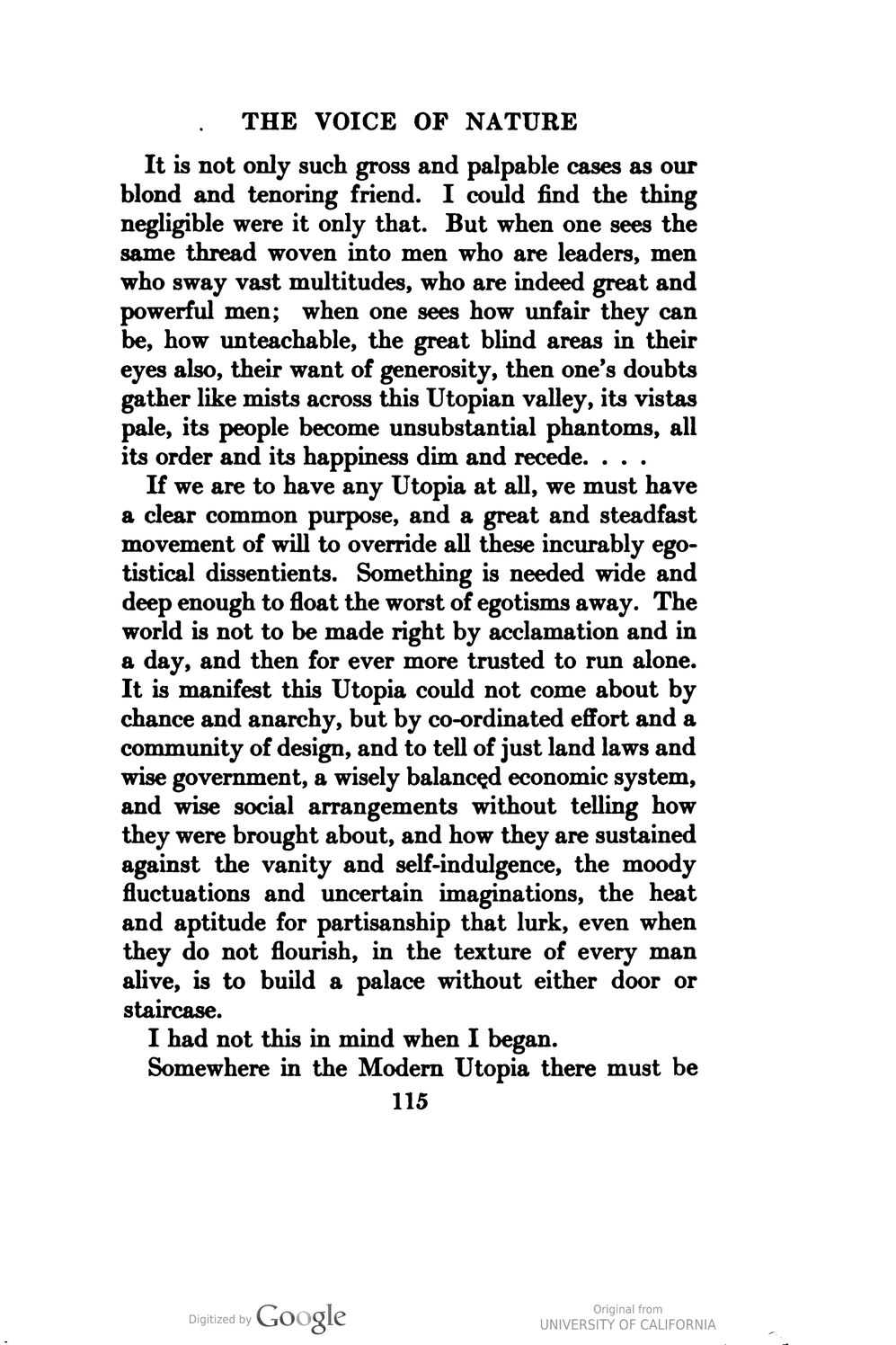THE VOICE OF NATURE
It is not only such gross and palpable cases as our blond and tenoring friend. I could find the thing negligible were it only that. But when one sees the same thread woven into men who are leaders, men who sway vast multitudes, who are indeed great and powerful men; when one sees how unfair they can be, how unteachable, the great blind areas in their eyes also, their want of generosity, then one's doubts gather like mists across this Utopian valley, its vistas pale, its people become unsubstantial phantoms, all its order and its happiness dim and recede. . . .
If we are to have any Utopia at all, we must have a clear common purpose, and a great and steadfast movement of will to override all these incurably egotistical dissentients. Something is needed wide and deep enough to float the worst of egotisms away. The world is not to be made right by acclamation and in a day, and then for ever more trusted to run alone. It is manifest this Utopia could not come about by chance and anarchy, but by co-ordinated effort and a community of design, and to tell of just land laws and wise government, a wisely balanced economic system, and wise social arrangements without telling how they were brought about, and how they are sustained against the vanity and self-indulgence, the moody fluctuations and uncertain imaginations, the heat and aptitude for partisanship that lurk, even when they do not flourish, in the texture of every man alive, is to build a palace without either door or staircase.
I had not this in mind when I began.
Somewhere in the Modern Utopia there must be
115
